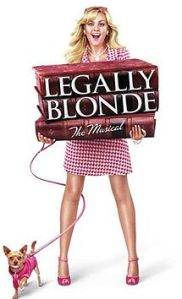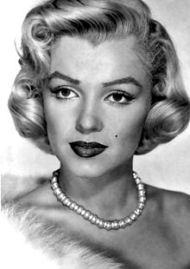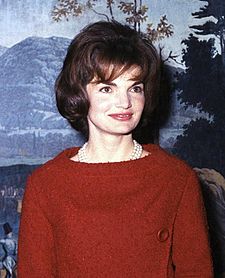There are a lot of misconceptions about feminism in the world.
There are many different reasons for this, of course. Feminism is a complicated topic. It’s hard to look at approximately 50% of the world’s population — women of all races, all nationalities, all ages, all sexual orientations, all income brackets, all political affiliations, all education levels, etc — and define a simple, clear message that everyone can agree upon. Especially since the advent of 3rd wave feminism, there are countless splinter and “niche” groups working under the greater feminist umbrella, and often working directly at cross-purposes to one another, or talking about completely different topics. In an age where information is readily accessed with the click of a mouse, we’re faced with an overwhelming glut of information regarding feminism, and very little of it is concise or clear or speaks with a single voice representing all of us.
But when it’s stripped back to the bare essentials, feminism *does* have one simple, easily expressed goal: gender equality, and the elimination of sexism. We disagree (sometimes vehemently) on how best to *achieve* that goal, of course, but the goal remains the same for all. And when you strip it back to that — when you say, “gender equality” instead of “feminism” — there are very few people who’ll argue against it.
And this is why the way we express ourselves about feminism, and the way we self-identify, needs to see some serious change.
If you believe that sexism is a bad thing, and that a person’s gender does not determine their worth, then you’re a feminist. You may not agree with *every* feminist group (no one does — there are simply too many of them out there) — but you’re a feminist, of some description. That’s all there is to it. Saying “I’m not a feminist”, then, is a lie — and worse, it’s hurting feminists (and people) everywhere.
When most people say “I’m not a feminist”, it’s because they’re misguided about what feminism means. They’ve bought in to a harmful stereotype — the man-hating, (often) lesbian, radical feminist who burns bras, thinks men should be slaves, and considers all penetrative sex to be rape. This is a stereotype that was created by (and has been largely perpetuated by) the oppressing class, as a way of discrediting the perfectly logical claim that women are people and should be treated as such. It’s a caricature, designed to make feminists look laughable and ridiculous and unfeminine, and unsexy, and unlovable, and criminal. So when you characterize all feminists this way, it’s no different than characterizing all Scots as “cheap”, or all Irishmen as “drunks”. You’re buying in to a bigoted stereotype, rather than learning about the individual people.
And when you buy in to that bigoted stereotype, and say “I’m not a feminist”, you’re also lumping yourself in with the people who actually ARE bigots. You’re aligning yourself with the people who believe that women’s rights should be taken away so we can go back to the “good old days”. You’re aligning yourself with sexual predators and rapists who don’t want their victims to have rights or be treated as people. You’re aligning yourself with the Taliban who shot Malala Yousafzai in the head for wanting an education.
Do you really want to be on the same side as those people?
I’m not saying that you should blindly help any cause that identifies itself as “feminist”. There’s no “supreme guiding council of feminist elders”, and no peer-review process, to determine the validity of any particular group’s claim to feminism. There are plenty of self-identified “feminist” groups out there who have views that may not, in fact, be particularly helpful ones. There are radfem groups who call themselves feminist but believe in the subjugation of men (I happen to strongly dispute their use of the term “feminist”, since by definition any group that advocates sexism is not, in fact, feminist — but that’s an issue that’s still considered up for debate in the broader feminist community). There are feminist groups who are anti-choice, or who align themselves with religious organizations, or who are sex-worker exclusionary, or trans-exclusionary, or classist/racist/etc in their aims, and I disagree vehemently with all of those things. And there are many feminist groups advocating for very specific, niche causes that may or may not be relevant to a particular person’s life — for example, a group dedicated to eliminating sexism in the medical profession might have a very good point, but not be relevant to me personally, as I’m an arts worker, not a doctor (dammit, Jim!). So just calling yourself “feminist” doesn’t make you right, and it’s still important to research the motivations and background of any group you’re looking to join up with or support.
One of the biggest groups who commonly say “I’m not a feminist” are, unfortunately, men. They’ll say, “I believe in women’s rights and equality, but I can’t be a feminist ’cause I’m a guy”. And that’s just ridiculously misguided. Not only is it perfectly possible for a guy to believe in gender equality (thus making him a feminist), it’s supremely important for people who are NOT women, who are NOT a part of the oppressed class, to take up the banner of feminism and make a conscious choice to support feminist aims. Because it’s the oppressing class (in this case, males) who has the majority of the power — and thus, it’s males who have the most power to change things. It’s been proven time and again that it’s easier for men (and especially white men) to get top positions at most jobs — they’re the bosses, the ones in charge of salaries, the ones in charge of hiring, and the ones in charge of policy. They’re the majority of the politicians. They’re the educators at universities. They’re the police and the lawyers and the judges who enforce and influence the laws. So if they’re working with feminist aims in mind (ie, a CEO who implements fair hiring policies, or a politician who fights for women’s reproductive rights), they’re in a position to do much more to help the cause than almost anyone else would be capable of. They’re the ones who, by and large, have the ability to tip the scales and start the workings of a fair society.
Another group that commonly denies feminism is people of colour. This is a more problematic issue — people of colour are already a part of an oppressed class, whether they are female or male or anything in-between. They’re already fighting for fair wages, fair representation, and fair application of the law. And many feminist groups are, unfortunately, very whitewashed. Because it’s white people who have traditionally had more education & wealth, it’s white women who largely spearheaded the early feminist movements, and it’s white women who have remained at the forefront. Many feminist groups are blatantly racist (or at least racially insensitive), and when you bring religion into the equation (people of colour are traditionally more attached to their faith, for a variety of reasons not worth going into here), it gets even more difficult — many feminist groups actively attack religious organizations, without regard to the people who worship that particular god, and this can be a massive turn-off for otherwise pro-gender-equality types. And because feminism has historically been white, it’s difficult for people of colour to break that barrier — too many, already exhausted from spending a lifetime being oppressed for the colour of their skin, walk into a feminist meeting only to see a sea of white faces and no one who looks remotely like themselves, and they feel automatically excluded. It’s hard to blame people for feeling that way. In the end, though, we’ll never be able to make feminism more POC-friendly without having some people of colour standing in those rooms. Some are going to have to break down those barriers, and walk into those rooms full of white faces, and decide they’re going to stay. And those of us who *are* white need to recognize this difficulty, and welcome such people with open arms, so that more of them will feel comfortable saying “I’m a feminist”.
What I find, personally, the most painful, are those women who believe that identifying as feminist will make them seem unattractive. They’re victims of fear — fear of being hated, fear of being spurned, fear of being alone. These are the people who media depictions of feminists are directly attacking, and directly oppressing. I just want to take those women and say, “It’s okay! What they said on TV was a lie — you can be a feminist and still be beautiful, and feminine, and a stay-at-home-mom, and people will still love you”. And they tell me that they’re “not as strong” as I am, or that they “don’t belong”. And that’s so wrong, because you don’t have to be an exception — or an exceptional person — to be a feminist. You just have to believe in equality.
In most media depictions, it’s the loudest and most strident voices who get the most airtime. These are the people who are easy to pick out of a crowd, and they give entertainment and good sound bites. They’re also the people who are easiest to ridicule and discredit. So we need more of the “normal” people, the ones with perfectly rational and moderate views (the ones that the majority of us espouse) to stand up and say clearly, “I’m a feminist”. We need to drown out those radical voices, and get voices of reason to be standing at the forefront. Because until we can “normalize” feminism, it’s never going to be fully successful.
And it really should be perfectly “normal” to believe that all people should have equal rights, right?



